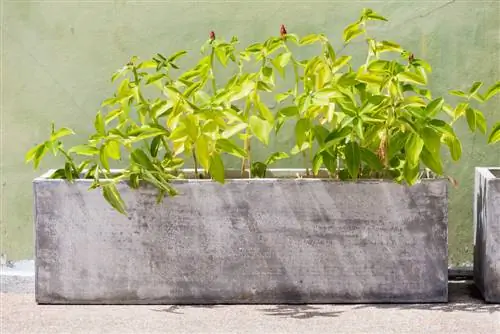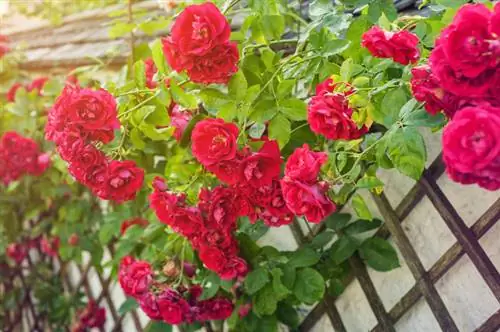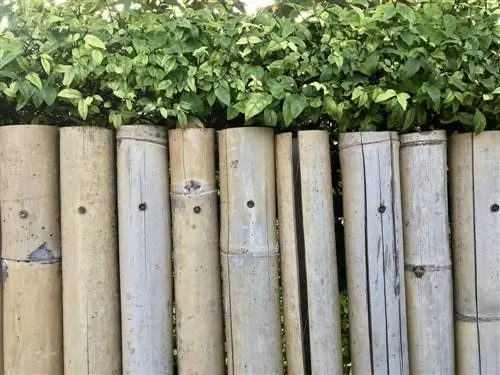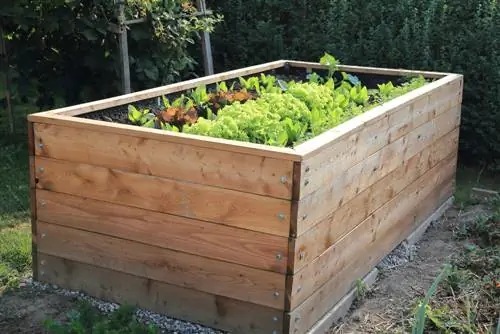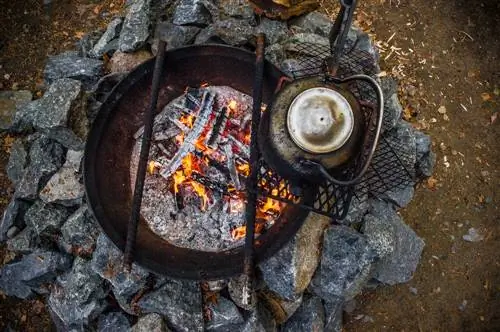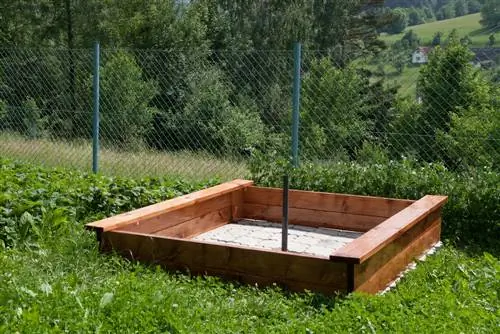- Author admin leonars@hobbygardeners.com.
- Public 2023-12-25 17:45.
- Last modified 2025-01-23 11:22.
Homemade garden objects are a gardener's pride and joy. Would you also like to impress with a specially made plant pot? Then you should definitely take a look at our instructions. On this page you will find helpful tips for creating the basic model, the beautification and all the advantages and disadvantages at a glance.
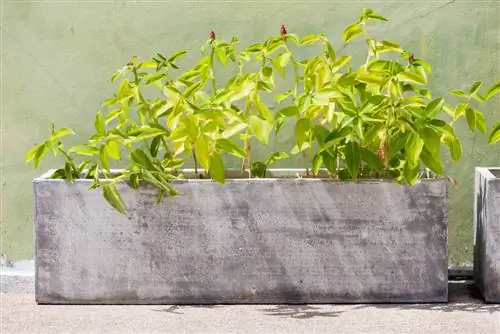
How can you build a planter yourself?
To build a planter yourself, first choose the right material such as wood, stone, Styrofoam or concrete. Then create the basic shape, design it individually and pay attention to drainage. More specialized designs may include trellises or water reservoirs.
Material selection
You can make a planter out of almost any material. Of course, each variant has its advantages and disadvantages. Some plant pots are created by using a container - for example a mortar tray. dress up, others you can make yourself. Here are the advantages and disadvantages at a glance:
Wooden planters
Advantages:
- natural look
- durable
- easy to make
- Material available everywhere
Disadvantages:
- may warp
- threatens to rot
Stone planters
Advantages:
- noble look
- very resistant
Disadvantages:
high weight
Styrofoam planters
Advantages:
- easy to make
- cost-effective material
- very easy
Disadvantages:
- looks cheap if the workmanship is poor
- not very durable
Concrete planters:
Advantages:
- very robust
- easy to make
Disadvantages:
high weight
Exemplary construction instructions
Basic shape
- mix cement
- Pour the mixture into a mold
- press in a smaller shape
- let dry overnight
- remove both shapes the next day
Tip
A little earth mixed into the concrete creates a rustic look.
Design
If the raw form is enough for you, you can plant it straight away. You can find suitable plants here. In order to visually integrate the plant pot into the garden, you can dress it up:
- Cutting wooden strips (e.g. decking)
- screw all around the plant pot
- or stick mosaic stones to the outside wall with cement
What to pay attention to?
It is very important that your homemade plant pot has drainage. Otherwise, waterlogging will occur so that no plant will survive in the pot for long. To do this, simply drill a hole in the bottom of your bucket. Suitable material for the filling supports a he althy water balance in the substrate. It is also important to ensure high stability. Here you can read how to secure your plant pot from falling over.
Special planters
Are you more experienced and looking for new crafting challenges? Then try our instructions for a plant pot with a trellis or water reservoir.

